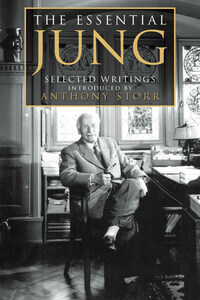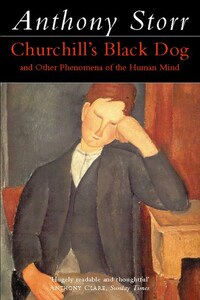HarperCollinsPublishers Ltd.
1 London Bridge Street,
London SE1 9GF
www.harpercollins.co.uk
This edition 1997
Copyright © Anthony Storr 1988
Anthony Storr asserts the moral right to be identified as the author of this work
All rights reserved under International and Pan-American Copyright Conventions. By payment of the required fees, you have been granted the non-exclusive, non-transferable right to access and read the text of this e-book on-screen. No part of this text may be reproduced, transmitted, downloaded, decompiled, reverse engineered, or stored in or introduced into any information storage and retrieval system, in any form or by any means, whether electronic or mechanical, now known or hereinafter invented, without the express written permission of HarperCollins e-books
HarperCollinsPublishers has made every reasonable effort to ensure that any picture content and written content in this ebook has been included or removed in accordance with the contractual and technological constraints in operation at the time of publication
Source ISBN: 9780006543497
Ebook Edition © MAY 2018 ISBN: 9780007385669
Version: 2018-07-09
‘Conversation enriches the understanding, but solitude is the school of genius; and the uniformity of a work denotes the hand of a single artist.’
Edward Gibbon
Gibbon is surely right. The majority of poets, novelists, composers, and, to a lesser extent, of painters and sculptors, are bound to spend a great deal of their time alone, as Gibbon himself did. Current wisdom, especially that propagated by the various schools of psychoanalysis, assumes that man is a social being who needs the companionship and affection of other human beings from cradle to grave. It is widely believed that interpersonal relationships of an intimate kind are the chief, if not the only, source of human happiness. Yet the lives of creative individuals often seem to run counter to this assumption. For example, many of the world’s greatest thinkers have not reared families or formed close personal ties. This is true of Descartes, Newton, Locke, Pascal, Spinoza, Kant, Leibniz, Schopenhauer, Nietzsche, Kierkegaard and Wittgenstein. Some of these men of genius had transient affairs with other men or women: others, like Newton, remained celibate. But none of them married, and most lived alone for the greater part of their lives.
Creative talent of a major kind is not widely bestowed. Those who possess it are often regarded with awe and envy because of their gifts. They also tend to be thought of as peculiar; odd human beings who do not share the pains and pleasures of the average person. Does this difference from the average imply abnormality in the sense of psychopathology? More particularly, is the predilection of the creative person for solitude evidence of some inability to make close relationships?
It is not difficult to point to examples of men and women of genius whose interpersonal relationships have been stormy, and whose personalities have been grossly disturbed by mental illness, alcoholism, or drug abuse. Because of this, it is easy to assume that creative talent, mental instability, and a deficient capacity for making satisfying personal relationships are closely linked. Regarded from this point of view, the possession of creative talent appears as a doubtful blessing: a Janus-faced endowment, which may bring fame and fortune, but which is incompatible with what, for the ordinary person, constitutes happiness.
The belief that men and women of genius are necessarily unstable has been widely held, especially since the time of Freud. It cannot possibly be the whole truth. Not all creative people are notably disturbed; not all solitary people are unhappy. Gibbon, after his initial disappointment in love, enjoyed a particularly happy and equable life which anyone might envy. As he wrote himself:
When I contemplate the common lot of mortality, I must acknowledge that I have drawn a high prize in the lottery of life … I am endowed with a cheerful temper, a moderate sensibility, and a natural disposition to repose rather than to activity: some mischievous appetites and habits have perhaps been corrected by philosophy or time. The love of study, a passion which derives fresh vigour from enjoyment, supplies each day, each hour, with a perpetual source of independent and rational pleasure; and I am not sensible of any decay of the mental faculties’ According to the scale of Switzerland, I am a rich man; and I am indeed rich, since my income is superior to my expense, and my expense is equal to my wishes. My friend Lord Sheffield has kindly relieved me from the cares to which my taste and temper are most adverse: shall I add, that since the failure of my first wishes, I have never entertained any serious thoughts of a matrimonial connection?











